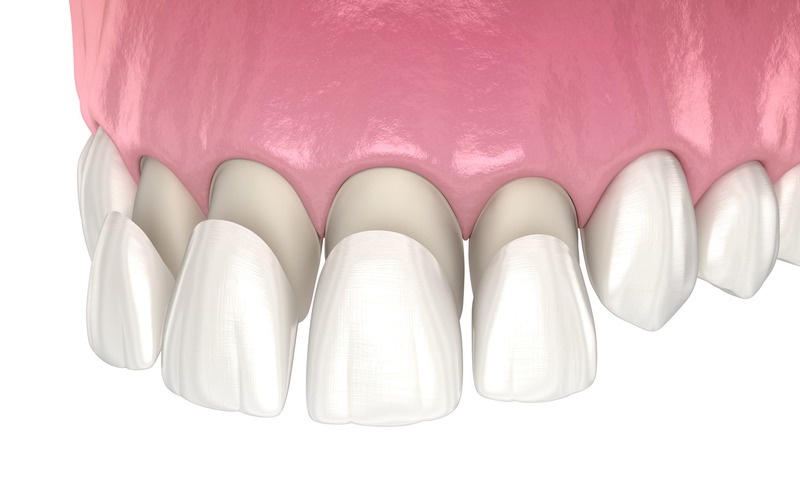Dental advancements grow by leaps and bounds every day, offering those with missing teeth a plethora of solutions. One such incredible development is implant-supported partial dentures. If you’re considering options for restoring your smile and chewing abilities, this might just be the perfect choice for you. Let’s embark on a journey to explore how these dental marvels work, their benefits, and what you can expect.
What Are Implant-Supported Partial Dentures?
Before diving into the specifics, it’s important to understand what implant-supported partial dentures actually are. Essentially, they’re a blend of dental implants and partial dentures. Instead of relying solely on the gum tissue or adjacent teeth for support, these dentures are anchored to dental implants. This combination promises enhanced stability, comfort, and functionality for individuals who’ve lost a few teeth but still have several natural teeth remaining.
Dental Implants Basics
Think of dental implants as the foundation for a new set of teeth. They’re small titanium posts surgically inserted into the jawbone. Titanium is preferred because it’s biocompatible, meaning it integrates well with human tissue. Once the implants are securely placed in the jaw, they act like the roots of natural teeth, supporting various dental restorations, including partial dentures.
Partial Dentures Explained
Partial dentures cater to individuals missing some but not all of their teeth. These removable devices contain artificial teeth attached to a gum-colored base and are designed to seamlessly blend with the rest of the patient’s natural teeth. Typically, they’re clasped onto natural teeth for support. When combined with implants, these dentures can offer superior stability and comfort.
Key Benefits of Implant-Supported Partial Dentures
Now that we’ve got the basics down, let’s explore the myriad benefits of opting for implant-supported partial dentures.
-
Enhanced Stability: With implants anchoring the dentures, there’s significantly less risk of them slipping out of place, making them especially reliable during speaking and chewing.
-
Preserve Jawbone Health: Implants provide the stimulation the jawbone needs, reducing the risk of bone loss that often accompanies missing teeth.
-
Improved Aesthetics: The close fit of implant-supported dentures gives a natural look, boosting the wearer’s confidence.
-
Long-lasting Solution: When cared for properly, these dentures can last many years, making them a cost-effective option in the long run.
Why Choose Implant-Supported Over Traditional Partial Dentures?
You might be wondering why one would opt for implant-supported dentures when traditional versions have been around for ages. Simply put, it’s all about the added benefits. Traditional dentures often come with issues related to slipping, discomfort, and even irritation. With implants involved, many of these concerns are drastically minimized.
Preventing Further Tooth Loss
Whenever you lose a tooth, it impacts the surrounding teeth and can lead to further bone deterioration and tooth loss. Implant-supported dentures help maintain bone density, ensuring you don’t lose more teeth over time. It’s like building a protective framework for your remaining natural teeth.
The Process of Getting Implant-Supported Partial Dentures
Adopting these advanced dentures involves a few crucial steps. Knowing what to expect can ease any anxiety and help you make informed decisions.
Initial Consultation and Planning
-
A thorough examination, sometimes including 3D imaging, will take place to assess the health of your jawbone and decide on the best placement for the implants.
-
The dentist will devise a personalized treatment plan tailored to your specific needs and preferences.
Surgical Placement of Implants
This step involves placing the titanium implants into the jawbone. While it might sound daunting, modern sedation and anesthetic techniques ensure the process is mostly painless. Once placed, a healing period is essential to allow the implants to fuse securely with the bone.
Attaching the Partial Denture
Once healing is complete, the dentist will fit the partial denture to the implants, crafting a seamless integration with your natural teeth. Regular adjustments may be necessary to ensure a perfect fit over time.
Care and Maintenance
Just like any other dental appliance, maintenance is key to longevity. Here’s a simple care routine to ensure your implant-supported partial dentures last:
-
Brush and floss daily, paying special attention to the areas around the implants to prevent plaque buildup.
-
Use non-abrasive toothpaste to avoid scratching your dentures or the implants.
-
Visit your dentist regularly for professional cleanings and check-ups.
A Healthy Lifestyle for Longer Lasting Results
Maintaining a balanced diet free of excessively hard or sticky foods can prevent damage to the dentures or implants. Additionally, regular exercise and not smoking can enhance bone health, offering longer-lasting support for the implants.
Implant-Supported Partial Dentures
Implant-supported dentures provide an effective solution for individuals missing teeth, ensuring stability and functionality. For those also dealing with misalignment issues, seeking the expertise of an Invisalign provider can offer a discreet means to straighten teeth without the need for conventional braces. If you are experiencing both alignment and tooth loss challenges, it’s advisable to consult with your dentist for a comprehensive treatment plan that incorporates both implant-supported options and orthodontic solutions like Invisalign.
Cost Considerations and Value
The investment in implant-supported partial dentures might seem hefty initially, but weighing the long-term benefits is essential. Traditional dentures might be less expensive upfront, but their longevity and the potential need for replacements can rack up costs over time. Implants might be pricier, but their durability often means fewer additional expenses in the future.
Insurance and Financing Options
Many dental insurance plans cover part of the cost of dental implants and dentures. However, it’s crucial to check specific coverage details with your provider. Additionally, some dental practices offer financing options, making the treatment more accessible.
Innovations in Dental Technology
Advancements in dental technology mean patients can enjoy faster, more efficient treatments with minimal discomfort. The use of 3D imaging, for instance, allows for more precise implant placements. Such innovations ensure that procedures are safer and recovery times shorter.
Biocompatibility of Modern Solutions
A major highlight of dental advancements is the emphasis on using biocompatible dental restorations. These solutions prioritize materials that blend well with the human body, reducing rejection risks and ensuring a more natural feel and look.
What to Expect Post-Treatment?
After getting implant supported partial dentures, it’s typical to experience some minor swelling or discomfort initially. This is standard after any surgical procedure. However, these symptoms shouldn’t linger and can usually be managed with over-the-counter pain relievers. Always follow your dentist’s tailored post-care instructions to ensure a smooth recovery.
Adjusting to Your New Dentures
Like any new experience, adjusting to implant-supported dentures might take time. It’s common for patients to notice differences in their chewing or speech initially, but with practice, these differences become negligible.
Final Thoughts
Esteeming dental stability and aesthetics, implant-supported partial dentures stand out as a modern solution blending form with function. They provide a reliable, lasting choice for those facing partial tooth loss, and their benefits in terms of comfort, durability, and appearance make them a favored option among many. Search for experienced dental professionals to explore how these dentures could enhance your smile and confidence.


